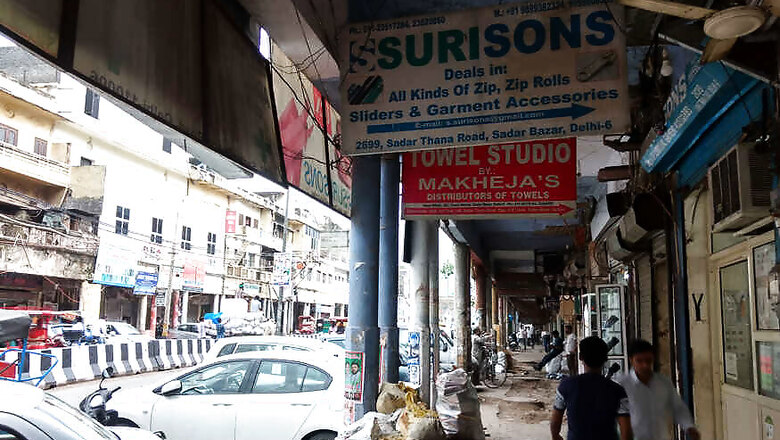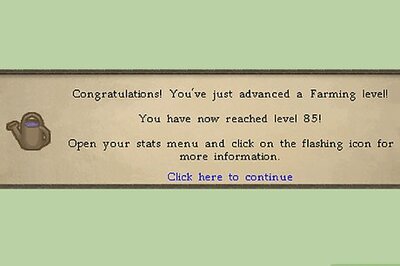
views
New Delhi: Sellers at Sadar Bazaar, North India's largest wholesale market are waiting idly for customers to do their 'bohoni' (first purchase) for the day. Gloom, confusion and anger are just a few of the words that describe the mood among traders here after the ambitious Goods and Services Tax (GST) was rolled out by President Pranab Mukherjee and Prime Minister Narendra Modi at midnight.
From wholesalers of fabric, plastic, artificial flowers, electronic goods to spices and toys, traders are anxious about business.
"There has been a drastic fall in footfall. Dhande ke baara baj gaye hain (The business has gone for a toss). On any other weekend, you wouldn't find space to stand in my shop. But today, it's just me, my helpers and a few customers who just glanced at the material without really buying anything. How much can we tolerate? First demonetisation and now this," JK Gupta, owner of JK Traders, a fabric wholesale shop told News18.
The entire cloth wholesale market had observed a three-day shutdown to protest the GST roll out. Under the GST, man-made fiber yarn will be taxed at 18% and the end product, the fabric, at 5%. This differential taxing strategy is set to seriously affect manufacturers who purchases yarn to make fabric. Sellers are also worried as many in the Sadar area deal with imported fabric, which now attracts a tax rate of 15%.
Dilawar Ashraf, owner of Sonal Fabrics, put the hike into perspective for the consumer. "This industry attracted no duty and now suddenly, customers find everything expensive. There is a big distinction between showrooms and our shops. This is the Mecca of wholesale goods. If something is expensive here then it will be double in your neighborhood shops. Plus, the way government has taxed the imported fabric is absurd. Now the markets will be flooded with Chinese fabrics, which could start a dangerous trend," he said.
A short walk from the fabric shops are glittery wholesale electronic stores. Here, too, empty shops during a weekend are an odd sight. Mahesh Mehta, at MM Traders, said, "All the items that you see in my shop come under the 28% tax slab. Obviously, the prices have gone up. Since all these malls had run mega discounts and clearance sales, there are no customers here on a weekend. A TV that previously was priced at Rs 15,000 will now cost about Rs 19,000 and the customers are not taking it well."
Mehta added that there has been a steady decline of 25% in sales since high-value currency notes were demonetised back in November.
The situation in the crockery market was no different on Saturday.
"We did not shut down our shop, even though everyone protested. But today I am left crying. I still do not have the invoice. However, an invoice would be useless. There are no customers here, so what is the use of an invoice? We were told this will replace multiple taxes, but this new tax regime is creating more confusion," said Alim K, who runs a wholesale home decoration shop consisting of paintings and handicrafts.




















Comments
0 comment